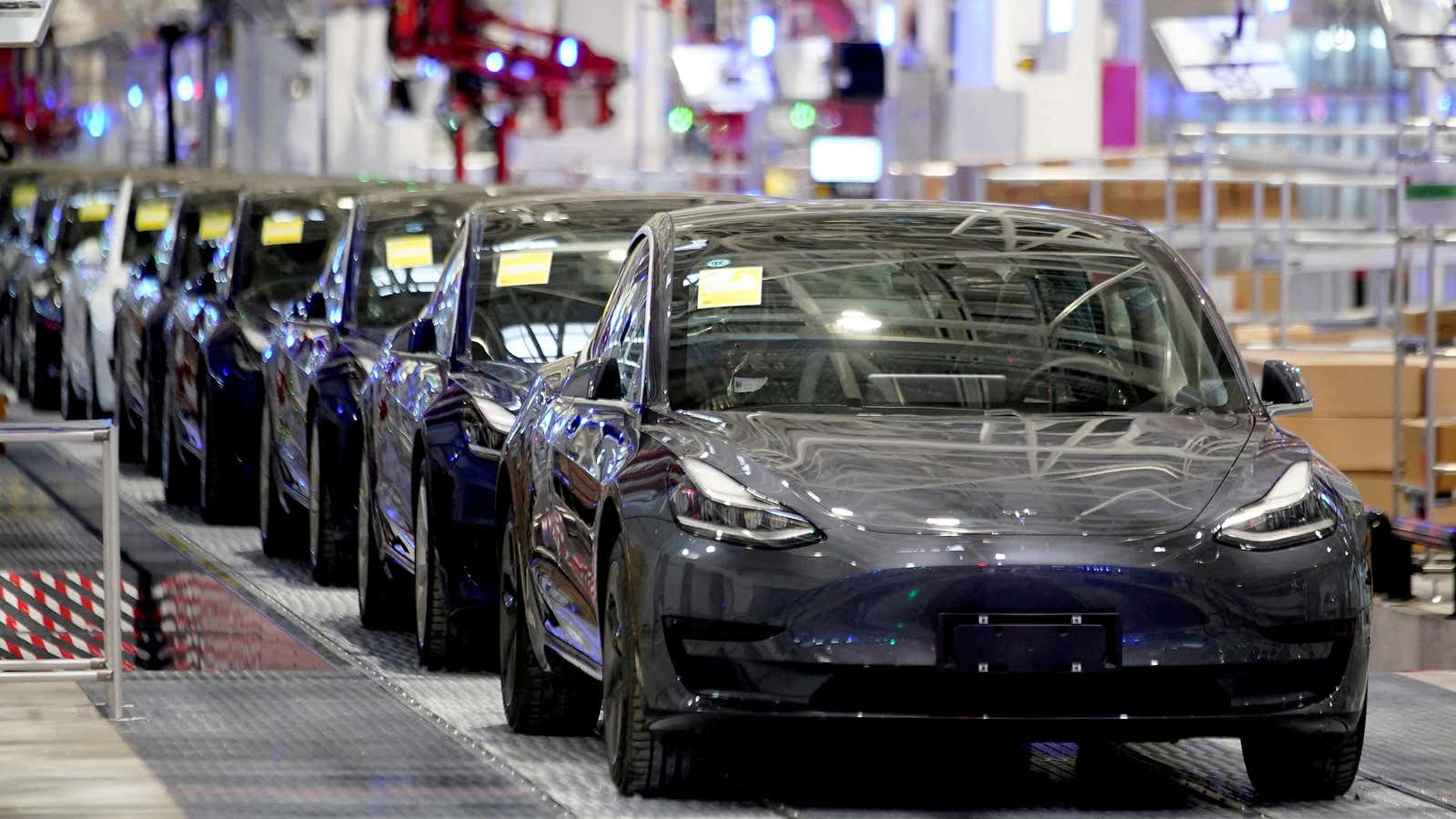It looks like India’s annual budget for 2022-23 will turbocharge its nascent electrical vehicle (EV) sector. Tesla, on the other hand, is seeing hope recede.
The country’s finance minister yesterday (Feb. 1) announced a policy for battery swapping to boost EV demand. Under this, the government will provide land resources to companies and boost charging infrastructure across the country.
Nirmala Sitharaman, in her speech, said “interoperability standards will be formulated” in the country. This means a uniform standard for EV batteries will be launched, which will be adhered to by all EV brands.
Industry players believe this will address range anxiety among potential customers. “It will ease range anxiety and charging time, which are two of the most common concerns among potential electric vehicle purchasers,” said Pawan Goyal, director at JRG Automotive Industries India, an auto component manufacturing firm.
Such regulation will hasten the development of battery swapping stations, where EV owners may recharge their vehicles by exchanging depleted batteries for fully-charged ones.
“The interoperability standards would assist Indian manufacturers to establish joint ventures with major technological partners from other countries, hence boosting long-term EV business in India,” said Sushant Kumar, CEO and managing director of AMO Electric Bikes.
What India’s EV industry thinks of union-budget
India’s domestic EV industry, especially the makers of two- and three-wheelers, is basking in all the attention it received from Sitharaman yesterday.
Four-wheelers, however, may not get much help as car majors don’t share battery technology.
“…There are very few products in the automobile that are consistent across brands. The cigarette lighter power supply (plug for GPS) and the valve stem for tires are about the only ones that can be mixed and matched across any brand,” Arthur Wheaton, an expert on the automotive industry and director of labour studies at Cornell University’s School of Industrial and Labor Relations told Mint newspaper.
What about Tesla’s India entry?
The budget, while cheering EV enthusiasts, also dropped hints for those desperately waiting for Tesla.
During her budget speech, Sitharaman emphasised the Narendra Modi government’s “make in India” initiative; she said the government doesn’t want to push heavily on imports and would rather produce locally. She even announced exemption in customs duties for the import of at least 350 goods manufactured in India.
This has come at a time when the US-based automaker Tesla has been demanding that the Modi government lower import duties. Talks, though, remain inconclusive as the centre wants Tesla to manufacture its models in India.
And now, with the centre’s new push for Modi’s Make in India scheme, India obliging Musk anytime soon seems a tad more difficult.
